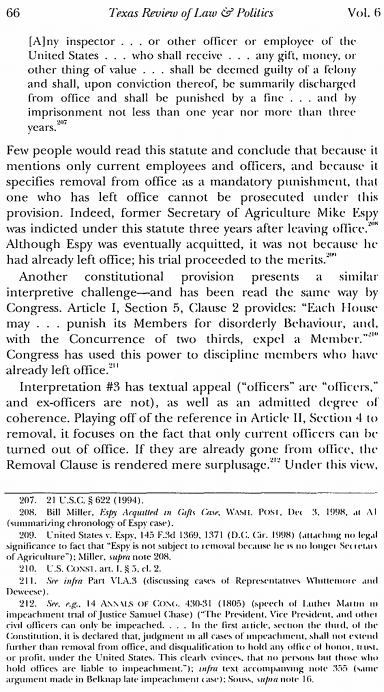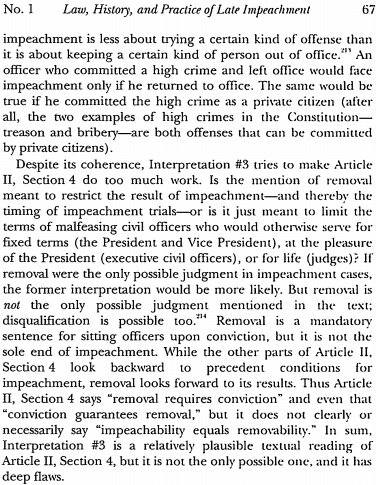Roger Stone’s case put pardons back into the news, so there are lots of questions—and wrong answers—about pardons circulating on Twitter. A thread is in order.
1. A pardon does not necessarily have a legal effect of declaring/admitting guilt.
See nydailynews.com/opinion/ny-ope…
1/5
1. A pardon does not necessarily have a legal effect of declaring/admitting guilt.
See nydailynews.com/opinion/ny-ope…
1/5
2. Impeached presidents can still issue pardons.
Johnson and Clinton issued heaps of pardons after being impeached. The pardon power has an impeachment exception, but it’s point is to separate the impeachment and criminal processes and limit pardons’ effect to the latter.
2/5
Johnson and Clinton issued heaps of pardons after being impeached. The pardon power has an impeachment exception, but it’s point is to separate the impeachment and criminal processes and limit pardons’ effect to the latter.
2/5
3. Impeached presidents can still be pardoned for the criminal consequences of the things they were impeached for.
Robert Reich baselessly asserted otherwise in an op-ed that led to a lot of people on Twitter being misled. Here is a longer thread that debunks Reich’s error:
3/5
Robert Reich baselessly asserted otherwise in an op-ed that led to a lot of people on Twitter being misled. Here is a longer thread that debunks Reich’s error:
3/5
https://twitter.com/ProfBrianKalt/status/1218323629957664768
4. It is unclear whether presidents can pardon themselves.
I devoted a whole chapter to this in my 2012 book: amazon.com/gp/aw/d/030012…. Like it or not, there are colorable arguments on both sides, so we can’t know for sure until (God forbid) there is an actual case.
4/5
I devoted a whole chapter to this in my 2012 book: amazon.com/gp/aw/d/030012…. Like it or not, there are colorable arguments on both sides, so we can’t know for sure until (God forbid) there is an actual case.
4/5
There are many other questions floating around, so feel free to tweet or DM me about pardons, impeachment, 25th amd., etc.
I have come here to chew bubblegum and correct misconceptions about constitutional procedures concerning the presidency...and I’m all out of bubblegum.
5/5
I have come here to chew bubblegum and correct misconceptions about constitutional procedures concerning the presidency...and I’m all out of bubblegum.
5/5
Post-script: For some reason, #3 in the thread isn't showing up for some people, so here's a direct link to it.
https://twitter.com/ProfBrianKalt/status/1228686674823188480
• • •
Missing some Tweet in this thread? You can try to
force a refresh






